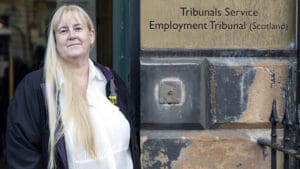A major VAT reform unveiled in the Budget is expected to unlock millions of pounds’ worth of surplus goods for charity and significantly reduce the volume of usable products sent to landfill.
From 1 April 2026, businesses will be able to donate goods to registered charities without incurring a VAT charge, removing a long-criticised tax barrier that has deterred companies from giving away unsold, returned or surplus items.
Under current rules, gifting goods — even to a charity — can trigger VAT on a “deemed supply” basis, meaning many firms choose to destroy stock rather than shoulder a tax liability. The government says the new relief will eliminate that cost entirely for donations made to HMRC-registered charities.
The decision follows a comprehensive consultation that drew strong support from charities, retailers, manufacturers and waste-reduction bodies. The Treasury said respondents “universally” highlighted the existing VAT charge as a key factor behind unnecessary waste.
HMRC explored extending the relief to social enterprises and unregistered community groups, but ultimately restricted eligibility to registered charities because of their governance and reporting requirements, helping to minimise fraud risk. Importantly, the relief will be open to charities of all types, not just those involved in poverty alleviation.
The scheme will use a simple two-tier valuation system:
• A £100 per-item limit for most donated goods.
• A £200 per-item limit for essential items including white goods, furniture, computers, phones and tablets — targeting support for households experiencing digital or material poverty.
Goods subject to excise duty, such as alcohol and tobacco, are excluded.
The relief covers donations used directly in charitable activities — for example, hygiene products supplied to a shelter — as well as goods redistributed to individuals and families in need.
To keep administration light, valuation will default to cost price, with businesses allowed to apply a lower figure for older or depreciated stock. Documentation requirements are minimal: proof of delivery to a qualifying charity and a simple certification confirming charitable use. Charities will not be faced with new compliance burdens, as record-keeping responsibilities sit entirely with the donating business.
HMRC will publish full technical guidance ahead of the 2026 launch, but the Treasury believes the policy could release a significant volume of items that currently end up discarded, supporting the circular economy, easing pressure on landfill, and strengthening UK charities’ supply of essential goods.
Greg McNally, founding partner of VAT consultancy VITA, welcomed the change, calling it “a long-overdue correction to a flawed system” that will help businesses reduce waste while supporting grassroots organisations across the country.


















